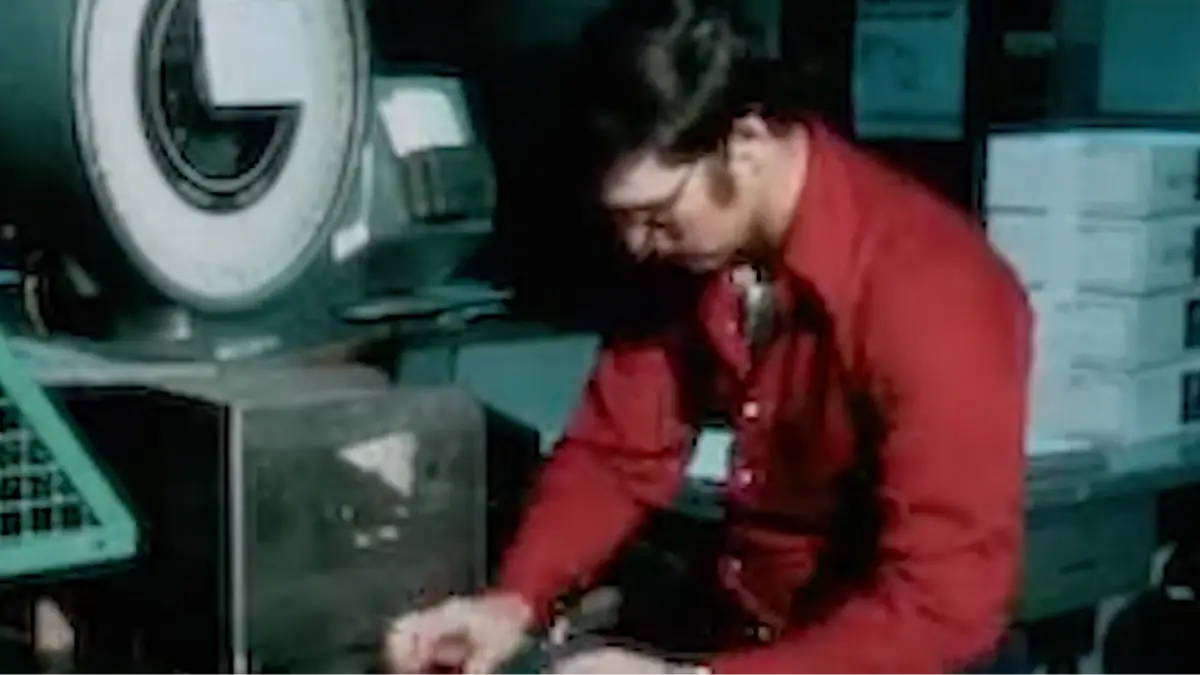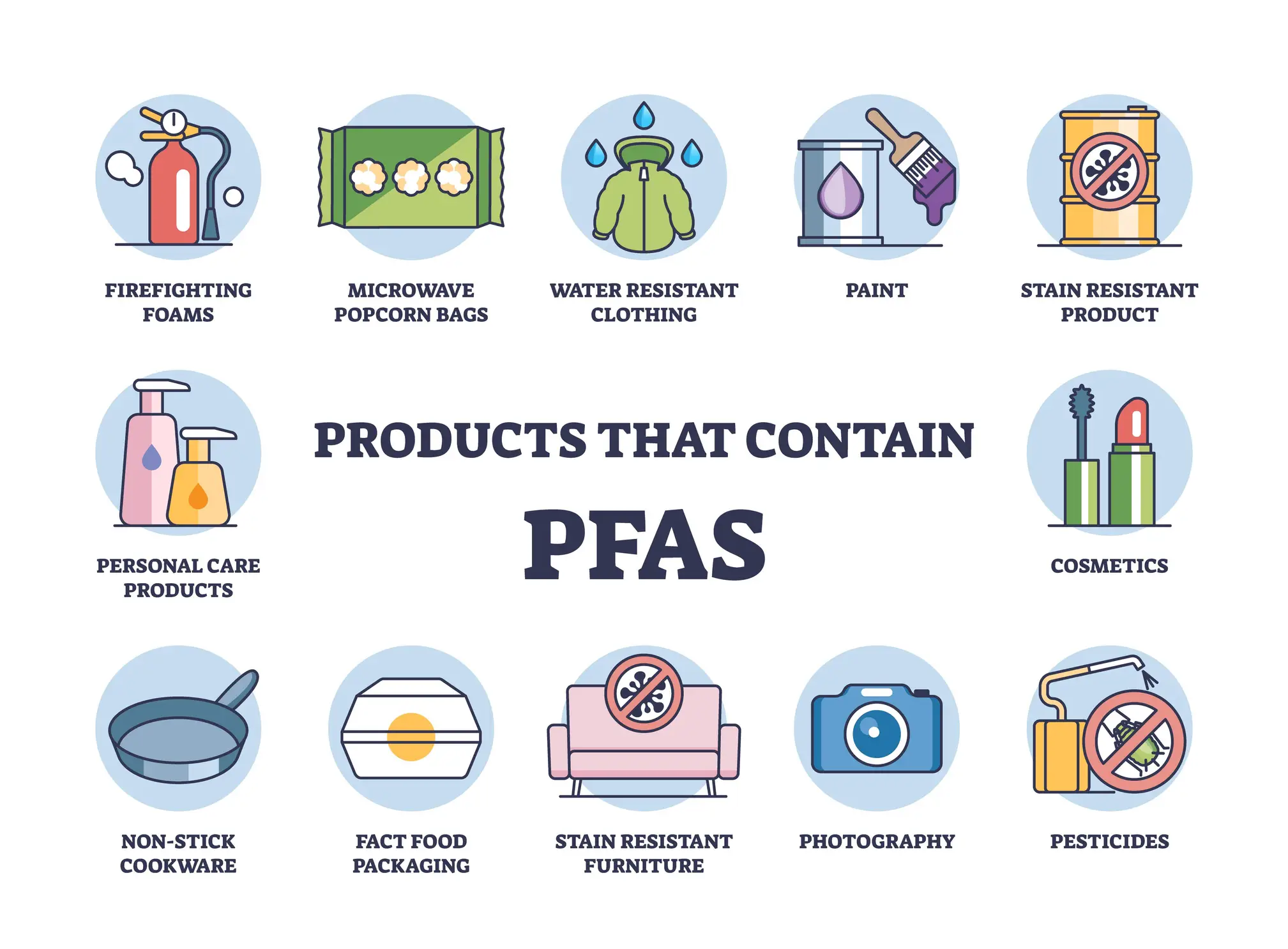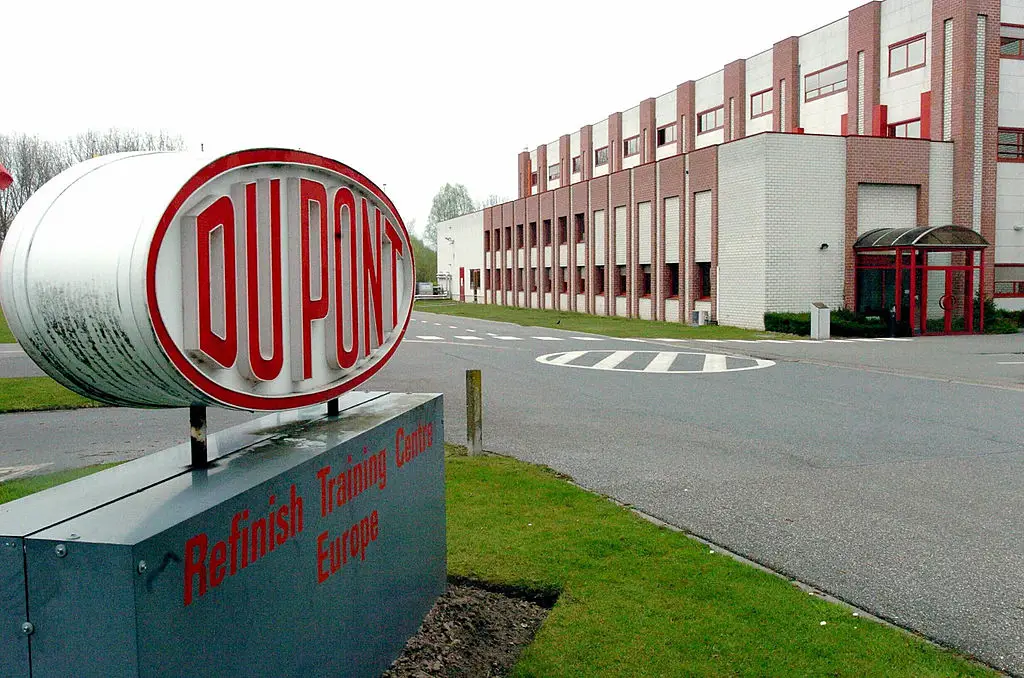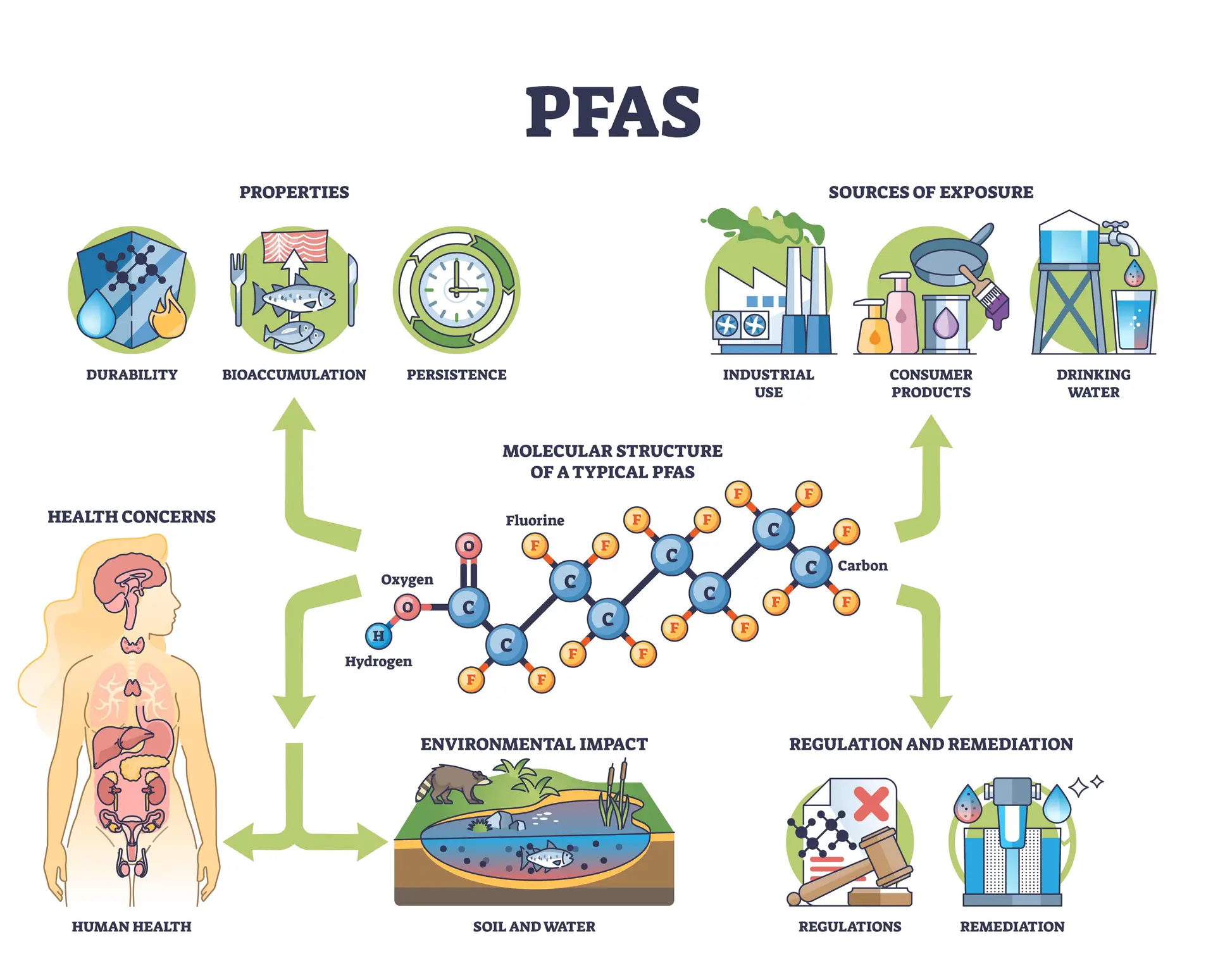
One chemical created by a staff member at an American firm has spread to contaminate our planet after its invention.
That company is the American chemical firm 'DuPont', of Wilmington in Delaware, which formed back in the 19th century - 1802 to be precise, by the French-American chemist Éleuthère Irénée du Pont de Nemours.
However, the industrialist died at the age of 63 in 1834, and it wasn't until more than 100 years later that his business created something - now known as the 'forever chemicals' - which have leaked into almost everything on Earth.
I'm talking of Perfluoroalkyl and Polyfluoroalkyl Substances (PFAS).
What are PFAS?
PFAS are long-lasting chemicals that can take more than 1,000 years to breakdown - which makes them a persistent pollutant.
Advert
These large, complex group of synthetic chemicals are resistant to heat, water, oil and grease, and have been widely used in everyday products for more than 70 years.

These molecules are made up of a chain of carbon and fluorine atoms, that are linked together, and the carbon-fluorine bond is the strongest covalent bond in organic chemistry.
There are an estimated 12,000 PFAS that have been created by scientists around the world.
What are PFAS found in?
As just mentioned, due to their ability to resist grease, oil, water and heat, they have been used to make products like non-stick pans, stain-resistant fabrics, food packaging, cleaning products, furniture, electronics and more.
One item in particular that contains PFAS is something almost every single person has in their home - a refrigerator.
Outside of what products use PFAS, they are no also found in water, fish, soil and air throughout the world, and they have even been detected in rainwater - at levels deemed unsafe to drink.
It's even found in our blood, but we'll get into that shortly.

What’s DuPont's involvement with PFAS chemicals?
As mentioned earlier, DuPont is the company that invented these forever chemicals as they desperately tried to come up with a less toxic alternative than the refrigerants methyl chloride and sulfur dioxide.
Roy J. Plunkett was the scientist charged with finding a safer way to cool foods in households throughout the US, and was experimenting with tetrafluoroethylene (TFE) - which is a pair of double carbons each bonded to two fluorine atoms.
However, when carrying out one specific test on the compound, he found that it had spontaneously polymerized into a white, waxy solid - having been a colorless gas prior.
That was in 1938. In 1945, DuPont trademarked the chemical 'Teflon', then just three years later, the firm was producing two million pounds of the chemical each year in a factory in Parkersburg, West Virginia.
In 1951, DuPont created perfluorooctanoic (PFOA) acid, which is often referred to as C8 due to its compound holding eight carbon molecules.
C8, which is a type of PFA, went on to be used to manufacture clingfilm, pizza boxes, electrical cables, food wrappers and more.

How can PFAS impact humans?
As highlighted previously, these minuscule chemicals are found in the blood of most people, and animals, around the world - as well as in food products.
According to the US Environmental Protection Agency (EPA), exposure to PFAS can lead to harmful consequences on a person's health.
The agency explains that peer-reviewed scientific studies have found that exposure to them can lead to reproductive effects, like decreased fertility and an increased high blood pressure in pregnant women.
It can also cause developmental issues for children, including bone variations, behavioral changes, accelerated puberty and low birth weights, as well as increasing the risk of some cancers, like kidney, prostate and testicular versions of the disease.
They also interfere with the body's natural hormones, risk obesity, increase cholesterol levels, and reduce your immune system's ability to right off infections.

What has DuPont said about PFAS?
The company has issued the following statement on its website, about its use of PFAS.
"In June 2019, DuPont de Nemours, Inc. (DuPont) was established as a new multi-industrial specialty products company. DuPont de Nemours has never manufactured PFOA, PFOS or firefighting foam," it read.
"While DuPont is not a PFAS commodity chemical manufacturer, it does use select PFAS compounds within industrial processes pursuant to relevant environmental, health and safety rules and standards. Such uses are necessary to impart specific product performance criteria and only in products that are essential to safety and the critical functioning of society.
"Our use of PFAS is limited and is managed as a Substance of Concern (SoC) consistent with the company’s Chemical Management Policy – Substance of Concern. We are currently pursuing alternatives to PFAS where possible."
It continued: "Additionally, we have rigorous systems, processes, and protocols in place to ensure that PFAS are used safely, are controlled to the highest standards, and are minimized in our operations.
"We support science-based efforts to develop guidelines for PFAS and commit to meeting these requirements in our global operations. We will continue to ensure our products and processes are fully compliant with laws and regulations on PFAS.
"Safety, health and protecting the planet are core values at DuPont. We are committed to continuous improvement of our chemical stewardship process and to upholding the highest standards for the safe operation of facilities and the protection of our environment, our employees, our customers, and the people of the communities in which we do business."
Topics: Environment, Health, Science, World News, Community, US News, Business